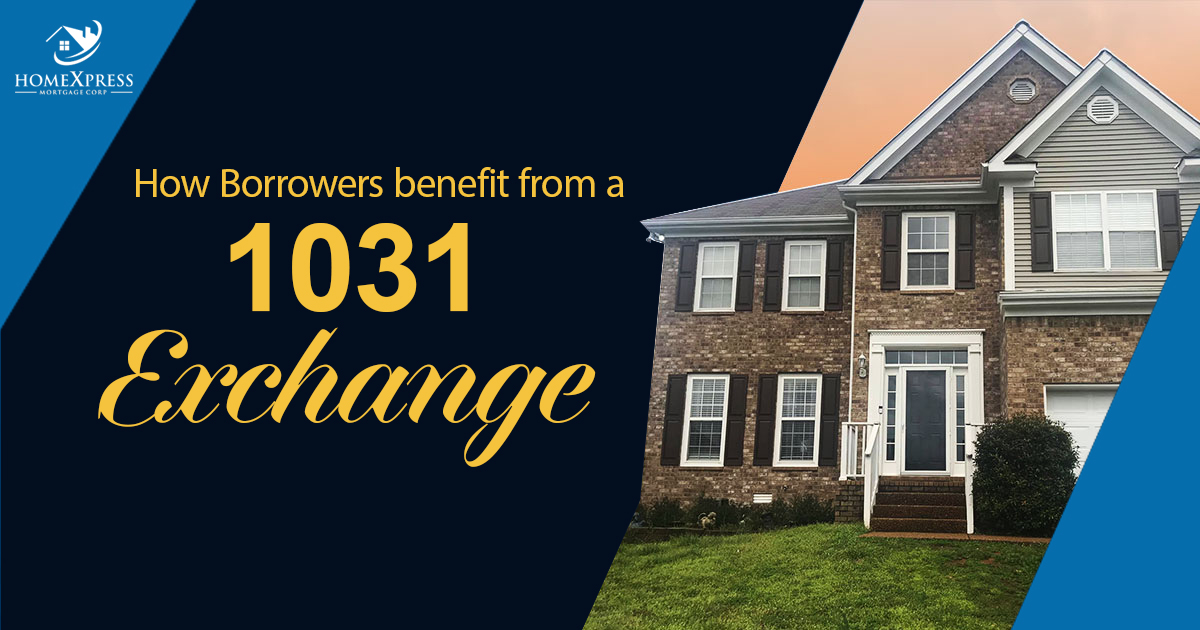How Borrowers benefit from a 1031 Exchange

Investing in real estate can be highly profitable but also comes with challenges. One major obstacle is managing taxes when selling investment properties. However, investors who understand capital gains tax can leverage the power of a 1031 exchange to their advantage.
So, what exactly is a 1031 exchange? It’s a provision in the United States Internal Revenue Code (Section 1031) that allows real estate investors to defer paying capital gains taxes on the sale of an investment property if they reinvest the proceeds into another investment property. The properties involved in the exchange do not have to be identical, but they must share the exact nature or character. So, for example, you can exchange an apartment building for a retail space or vacant land for a rental property. This flexibility enables investors to diversify their real estate portfolio while deferring taxes.
Let’s delve into how a 1031 exchange works.
To qualify, investors must adhere to specific rules and requirements. The property sold and acquired must be held for productive use in a trade or business or as an investment. Personal residences and properties held primarily for sale do not qualify.
Timing is crucial in a 1031 exchange. Once the initial property is sold, investors have 45 days to identify potential replacement properties and 180 days to close on one or more properties. A third-party intermediary facilitates the exchange. An intermediary is an escrow account that holds the proceeds from the sale of the house and disburses funds to the new investment property. The investor cannot access the funds directly during the exchange process.
The replacement property or properties must have an equal or greater value than the sold property. Any cash received from the sale or debt reduction will be taxed accordingly.
Now, let’s explore the benefits of using a 1031 exchange:
Tax deferral:The primary advantage is the ability to defer paying capital gains taxes. By reinvesting the proceeds into another property, investors can keep their money working for them and accumulate significant wealth over time.
Portfolio diversification: A 1031 exchange provides flexibility, allowing investors to diversify their real estate holdings without incurring an immediate tax liability. This opens opportunities to adjust investment strategies, upgrade to larger properties, or explore different markets while avoiding tax liabilities.
Increased purchasing power: Deferring taxes gives investors more capital for the down payment on a replacement property. This increased purchasing power can lead to acquiring higher-value properties, potentially generating greater cash flow and appreciation.
Real estate investors can greatly benefit from utilizing a 1031 exchange. By deferring capital gains taxes, they can maximize their investment potential, diversify their portfolios, increase their purchasing power, and enhance their estate planning strategies. If you’re interested in exploring the possibilities of a 1031 exchange, our experienced Account Executives are ready to assist brokers through this process and reap the rewards it offers.
Work with Non-QM Loan Experts.
HomeXpress Mortgage is committed to serving self-employed borrowers and the Non-QM market. Our experience and expertise in alternative credit lending allows us to determine which programs fit a borrower’s unique loan scenario. Our underwriters manually review credit files to find the best solution for your borrowers.
Contact one of our experienced and knowledgeable Account Executives at (855) 598-1430 to learn how HomeXpress can help you grow your Non-QM pipeline.
Disclaimer:HomeXpress Mortgage Corp. does not provide tax, legal or accounting advice. This material has been prepared for informational purposes only, and is not intended to provide, and should not be relied on for, tax, legal or accounting advice. You should consult your own tax, legal and accounting advisors before engaging in any transaction.
